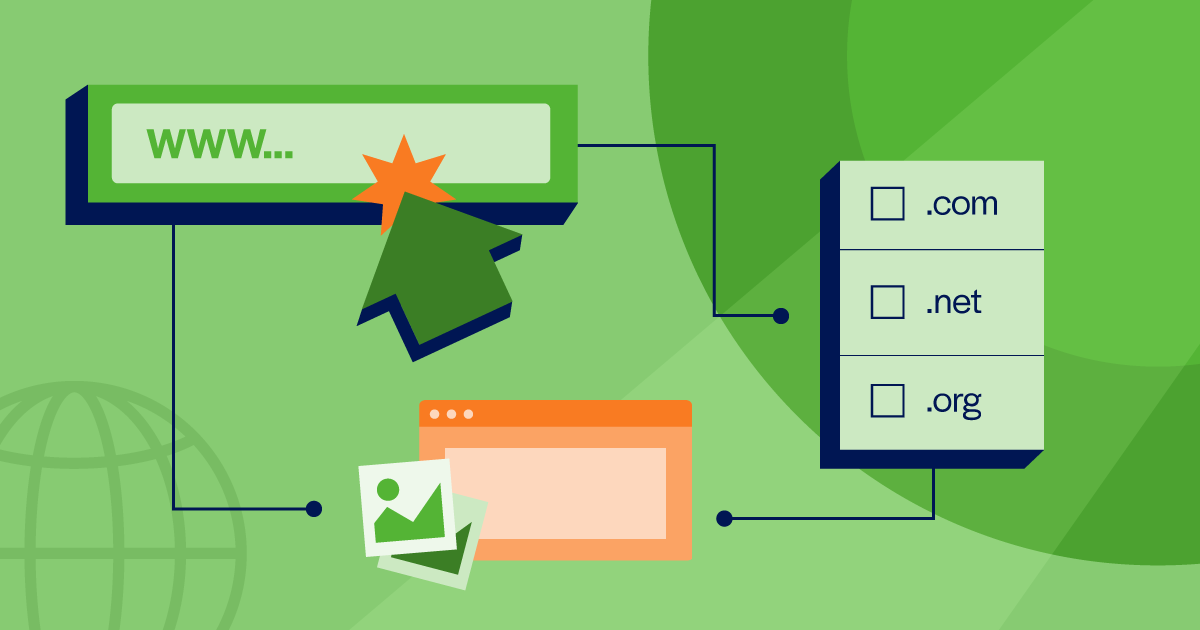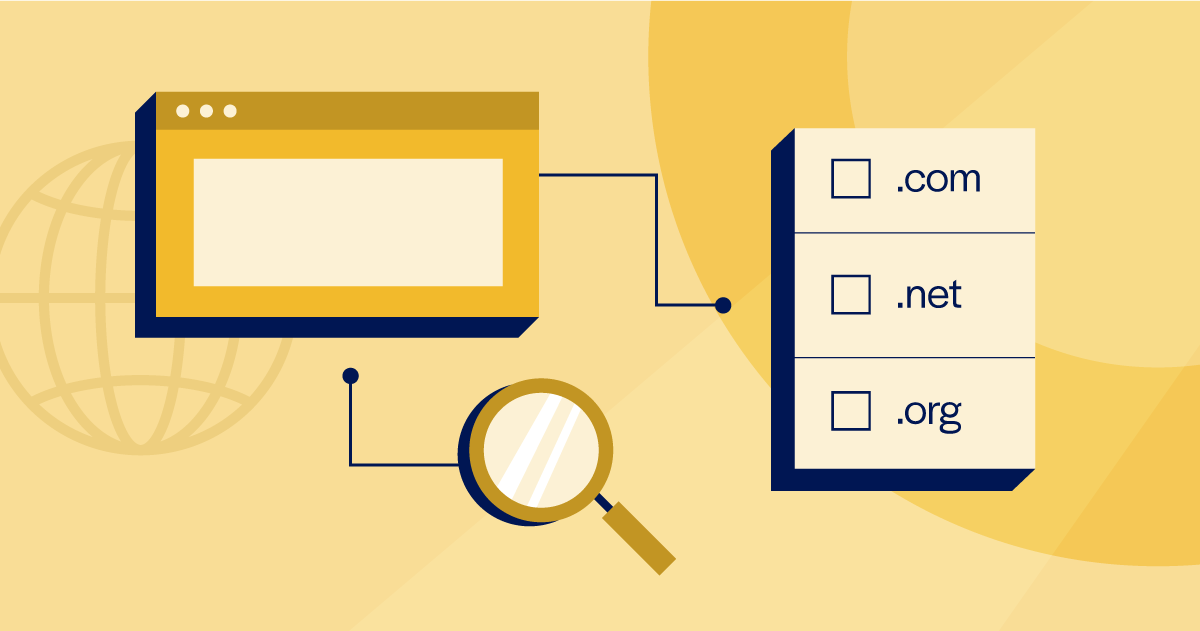Registering multiple domains will create more opportunities for people to find your website (even if you only have one). You can redirect each domain name you register to your main website, which will help you protect your brand, target local markets, and capture anyone who misspells or mistypes your domain name in the address bar.
Here, we’ll explore a few reasons why registering multiple domain names can help your business so that you can decide how many is right for you.
1. To Protect Your Brand
Your brand is the public persona of your business—it’s how people learn to trust you enough to buy something from you. Building a strong brand takes time, effort, and money, and damage to your brand’s reputation can be hard to repair.
If you only own one domain name, you’re leaving your business vulnerable to bad actors who might try to tarnish your brand. For example, say you own businessname.com. Someone could buy businessname.co and use it to impersonate your business, gathering your visitors’ personal information or even scamming them out of money. This is a form of cybersquatting (which is illegal) and visitors who wanted to find your website but ended up here by mistake could fall victim. Of course, this could cause some serious damage to your reputation. So how do you avoid this?
One strategy is to buy your root domain – the “businessname” portion of businesname.com – and pair it with several other top level-domains. So if your main website is HaleysHockeySupplies.com, you would also buy HaleysHockeySupplies.net, HaleysHockeySupplies.info, and even HaleysHockeySupplies.sport. Then you can redirect these domains to your main domain.
This makes it less likely that a potential customer will go to the wrong website and spend money on a sub-par service or product. Or worse yet, they may get scammed and spend money on a product they never even receive, then write a bad review blaming your business.
2. To Redirect Typos to Your Main Site
Misspellings and other typos can cause you–and visitors–to miss out. As an example, let’s say your business name is AlisonsCakeShack.com, but you’re worried customers will add an extra l and type in AllisonsCakeShack.com. So you decide to buy the second name and have it redirect to AlisonsCakeShack.com.
If you’re using rare, hard-to-spell, or made-up words, then redirecting typos will be especially important. For instance, someone named Leighton Laakso is more likely to have people misspell their name than someone named Jake Miller, so Leighton might also want to buy likely misspellings, like LaytonLasko.com.
However, you don’t need to buy domain names for non-obvious typos or misspellings. For instance, there’s no need to buy AlisonsKakeShack.com, as the vast majority of people will have no trouble spelling “cake.” Even if they do, Google will ask them “Did you mean AlisonsCakeShack.com?” and show them the correct list of results.
3. To Target Local Markets
Multiple domains can help your business expand into other locations when you’re ready. To do this, incorporate specific location words into your domain names from the beginning.
For instance, if your original location opens up in Dallas, you could use the domain businessnameDallas.com. Things go well enough that, a year later, you decide to expand into Austin. This time, you use businessnameAustin.com, which you already reserved before your Dallas location opened. Eventually, things are going well enough that you decide to expand west into New Mexico, so you go with the previously reserved businesnameSantaFe.com.
By doing this, you can both build on the good brand name you’re developing and make it more likely that your business shows up in local search results. And by registering these domains early, you keep competitors from swooping in and stealing them.
However, unless you have concrete plans to become a national brand, you probably don’t need to buy up 48 other domain names, one for every state. Focus on what seems plausible for your business when you’re purchasing extra domain names.
4. To Ensure a Seamless Name Change
Businesses change names for any number of reasons. If you’re planning on a name change, you’ll need to change your domain name, too. However, you should still keep the old domain name and simply redirect it to the new one.
You can opt for a permanent or temporary redirect. A permanent redirect is the best option in most cases, including when you’re changing your business name. Search engines will also acknowledge this type of redirect over a temporary one, meaning you shouldn’t lose any ground in terms of how your page ranks.




